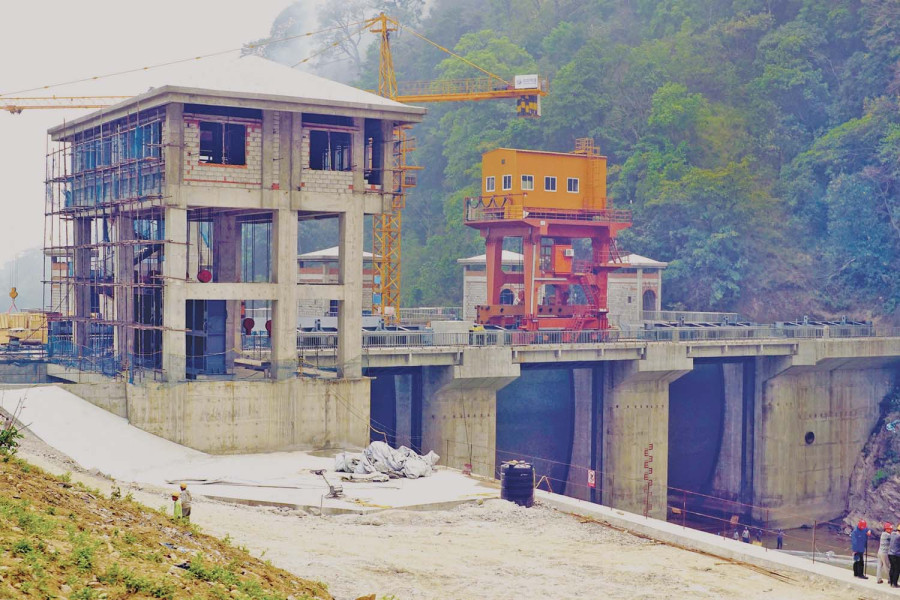Money
Nepal’s FDI commitments surge 33 percent amid policy reforms
Streamlined approval process and legal amendments drive foreign investment pledges, but actual inflows remain modest due to governance challenges.
Post Report
Nepal has witnessed a 33 percent rise in foreign direct investment (FDI) commitments during the first ten months of the current fiscal year ended mid-May. Officials attribute this growth primarily to recent amendments to FDI-related laws and a more streamlined approval process.
According to the Department of Industry, the country received investment pledges worth Rs56.78 billion across 565 projects during the review period. These commitments are projected to generate employment for approximately 17,746 people.
Prashant Bohara, director of the Foreign Investment and Technology Transfer Division at the Department of Industry, said that the legal amendments and the operationalisation of the automatic route have significantly contributed to increased commitments.
He noted that FDI applications arriving via the automatic route are approved within a day, and those through the standard route are processed within a couple of days. This acceleration in the approval timeline, he said, has played a crucial role in boosting investment pledges.
In the first ten months of the fiscal year, Nepal received FDI pledges amounting to Rs3.20 billion for 274 projects under the automatic route.
This marks a notable increase from the previous fiscal year, during which only 22 projects worth Rs1.5 billion were registered through the same mechanism. Most of the commitments through the automatic route targeted small-scale industries, with 272 projects attracting Rs2.76 billion in pledges.
The information and communication technology sector saw the highest number of commitments under this mechanism, totalling 221 projects.
A major policy shift took place with the issuance of an amended ordinance in January, which allows foreign investors to make equity investments in Nepali industries by purchasing units of venture capital funds or by investing through specialised investment funds registered under the Securities Board of Nepal.
However, restrictions still apply to certain agricultural sectors such as animal husbandry, fisheries, beekeeping, fruits, vegetables, oilseeds, pulses, and dairy.
Exceptions are made for large-scale enterprises in these sectors that export at least 75 percent of their products. The definition of "large industries" has been broadened to include businesses incorporating agricultural technology and mechanisation.
Another significant regulatory reform was eliminating the requirement for provincial ministry recommendations for foreign investment or technology transfer approvals in industries registered at the provincial level. Now, investors only need to obtain a certificate of industry registration, simplifying the bureaucratic process.
Most of the investment commitments were directed towards small-scale industries during the review period. The Department of Industry reported pledges amounting to Rs45.44 billion for 551 small-scale projects, Rs9.35 billion for six large-scale projects, and Rs1.99 billion for eight medium-scale projects.
The service sector received the highest amount of FDI commitments, with Rs29.98 billion pledged for 66 projects. The tourism sector followed closely with Rs20.73 billion pledged for 213 projects.
Additionally, Rs3.11 billion was committed to 41 manufacturing sector projects, Rs1.40 billion to 231 communication and information technology projects, and Rs1.42 billion to 10 agro- and forestry-based initiatives.
The department also facilitated immigration support for foreign investors and their teams during this period. A total of 1,771 investors, 305 representatives, and 729 dependents were recommended for business visas. Furthermore, non-tourist visa recommendations were issued for 58 advertisements and 14 technology transfer agreements.
Despite this surge in FDI commitments, the actual inflow of foreign investment remains modest.
According to Nepal Rastra Bank, the country received FDI inflows amounting to Rs8.96 billion in equity during the first nine months of the current fiscal year, up from Rs6.49 billion in the same period last year. This disparity between pledged and actual investment reflects a broader challenge that developing economies face.
FDI plays a pivotal role in the economic growth of developing countries like Nepal. It facilitates the transfer of technology, enhances market competitiveness, improves human capital, and integrates local economies into the global marketplace.
However, the effectiveness of FDI is often influenced by internal factors, particularly governance quality and corruption.
A study by Niranjan Koirala, "Does Corruption Affect Foreign Direct Investment Inflows in South Asian Countries?", published in the 70th Anniversary Special Report of Nepal Rastra Bank recently, underscores the negative impact of corruption on FDI.
The report references research by Alemz (2012), which analysed FDI flows from 1995 to 2016 across 16 Asian economies. It found that a one percent increase in corruption led to an approximate 9.1 percentage point decrease in FDI inflows.
The implication is clear: countries with high levels of corruption might significantly boost FDI inflows if they manage to reduce corruption and improve institutional transparency.
Corruption increases uncertainty, inflates transaction costs, and adds operational risk for foreign investors. Over time, it undermines a country's legal and regulatory frameworks, eroding trust in public institutions and discouraging further investment.
Transparent and accountable institutions, on the other hand, can create a fair and predictable environment for investors. They reduce risk, foster competition, and attract sustained foreign investment.
In summary, while Nepal's recent reforms have led to a commendable rise in FDI commitments, the challenge remains to translate these pledges into actual inflows. Further improvements in governance, transparency, and institutional efficiency will be critical if Nepal is to capitalise on its FDI potential fully.




 18.12°C Kathmandu
18.12°C Kathmandu












